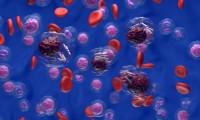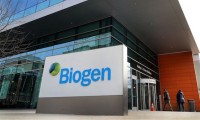-
Xilio fires 21% of its workforce and reprioritises pipeline
- Source: drugdu
- 76
- April 5, 2024
-
Bristol Myers CEO outlines transition strategy featuring 11 key brands, more dealmaking
- Source: drugdu
- 85
- February 5, 2024
-
Daiichi Sankyo again dials up Enhertu sales forecast, advances 2nd AstraZeneca-partnered ADC
- Source: drugdu
- 131
- February 2, 2024
-
FDA Calls for New Safety Warning for the Class of CAR T Cancer Therapies
- Source: drugdu
- 92
- January 25, 2024
-
CAR-T hype faces infrastructure reality check
- Source: drugdu
- 302
- January 17, 2024
-
Big Pharma reworks China strategy, and job cuts are part of it
- Source: drugdu
- 195
- December 27, 2023
-
Elli Lilly Cancer Drug Lands Its Second FDA Approval This Year
- Source: drugdu
- 112
- December 6, 2023
-
FDA opens investigation into secondary cancer risk with CAR-T therapies
- Source: drugdu
- 97
- December 1, 2023
-
FDA investigates ‘serious risk’ of secondary cancer following CAR-T treatment
- Source: drugdu
- 228
- November 30, 2023
-
Biogen lays off staffers at newly acquired Reata, with 113 set to lose positions
- Source: drugdu
- 150
- October 13, 2023
your submission has already been received.
OK
Subscribe
Please enter a valid Email address!
Submit
The most relevant industry news & insight will be sent to you every two weeks.













